Wondering what car mods to buy which can add serious performance to your car but wont cost an arm and a leg? Check out this blog for our top 10 value for money car mods…
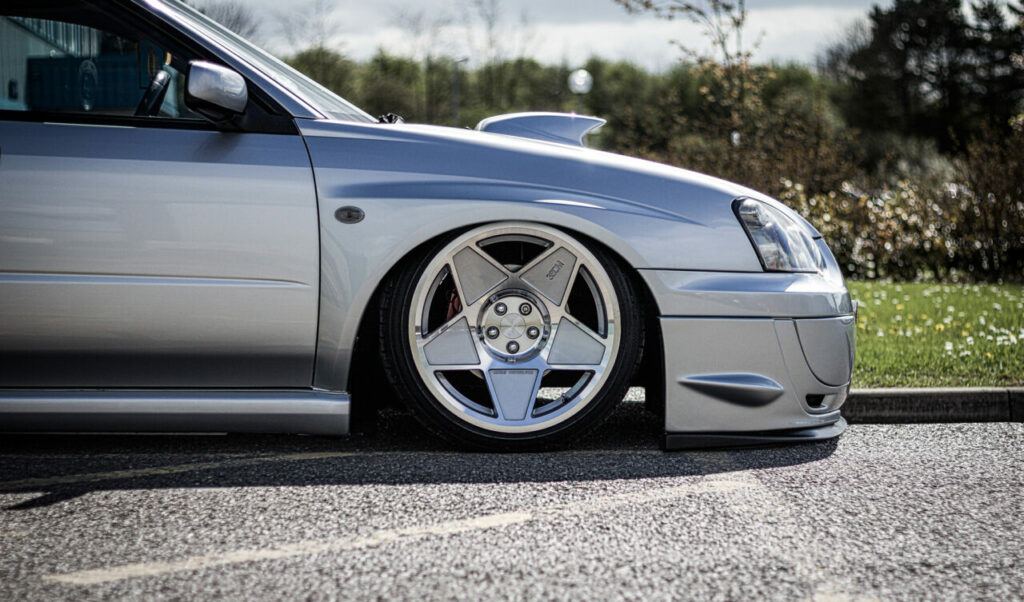
Air Filters
The cheapest way to add some power to your car is generally to fit a performance air filter. These come in a few different flavours, and the one you choose will depend on both your car and your budget. On most cars, your standard air filter will probably be made from paper – meaning that it is cheap to produce – and it will generally get replaced at every service. Whilst paper is cheap and does the job of keeping dirt out of your engine well, it is also quite restrictive and will stop your engine from sucking air in as easily as it could otherwise (imagine breathing through a paper bag).
Performance variants tend to be made of more expensive materials such as oiled foam or cotton and will generally last for the lifetime of your car with proper maintenance. K&N, for instance, give their filters a million-mile warranty! Being reusable, they’re also better for the pocket and environment with no more paper filters going to landfill.
From £22.14
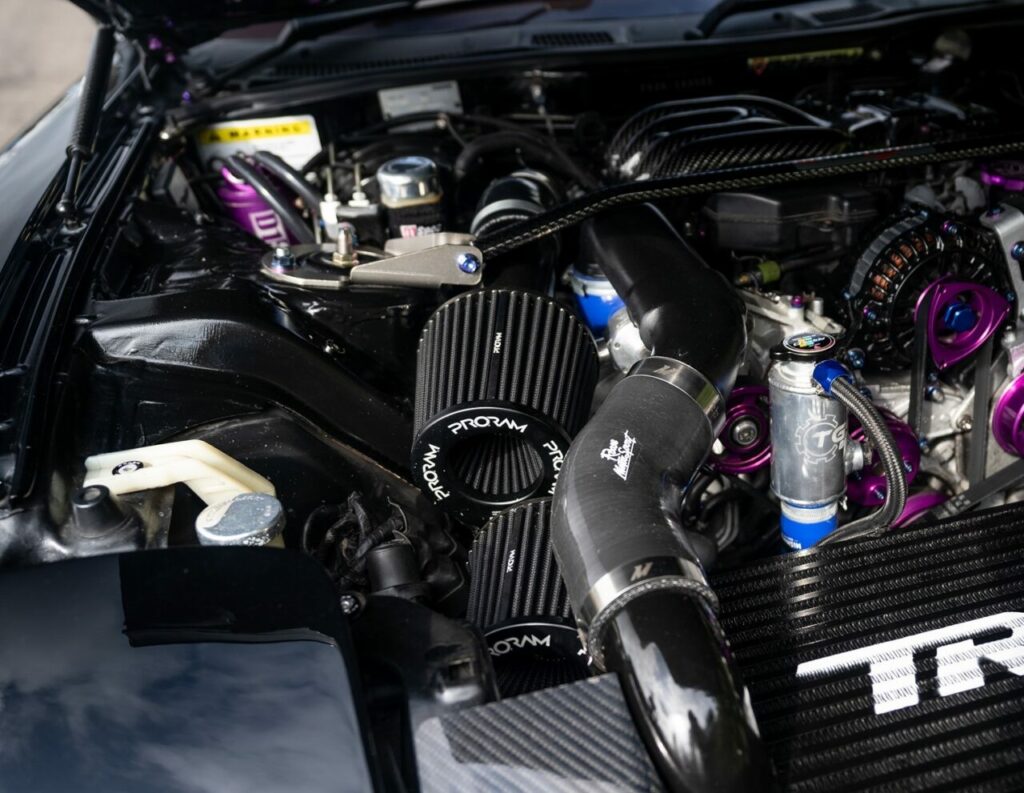
Lowering Springs
Handling improvements might not be as glamorous as big power figures – and they won’t give you a handy number to quote to your mates – but they will make your car a hell of a lot more fun to drive. Improving your chassis can also increase your fuel economy, reduce tyre wear and even make your car safer to drive whilst you’re at it! If you lower your car by 30 mm, then congratulations; you’ve just lowered every last bit of sprung mass on the car by the same amount – something that will have a great effect on its centre of gravity and make it look a lot better as a bonus.
Lowering springs tend to be stiffer – which will reduce body roll through the corners, as well as compression during weight transfer (hard acceleration or braking). Many are also progressively wound, which means that your suspension will be softer when you’re not giving it any, and firmer when you are.
From £73.00
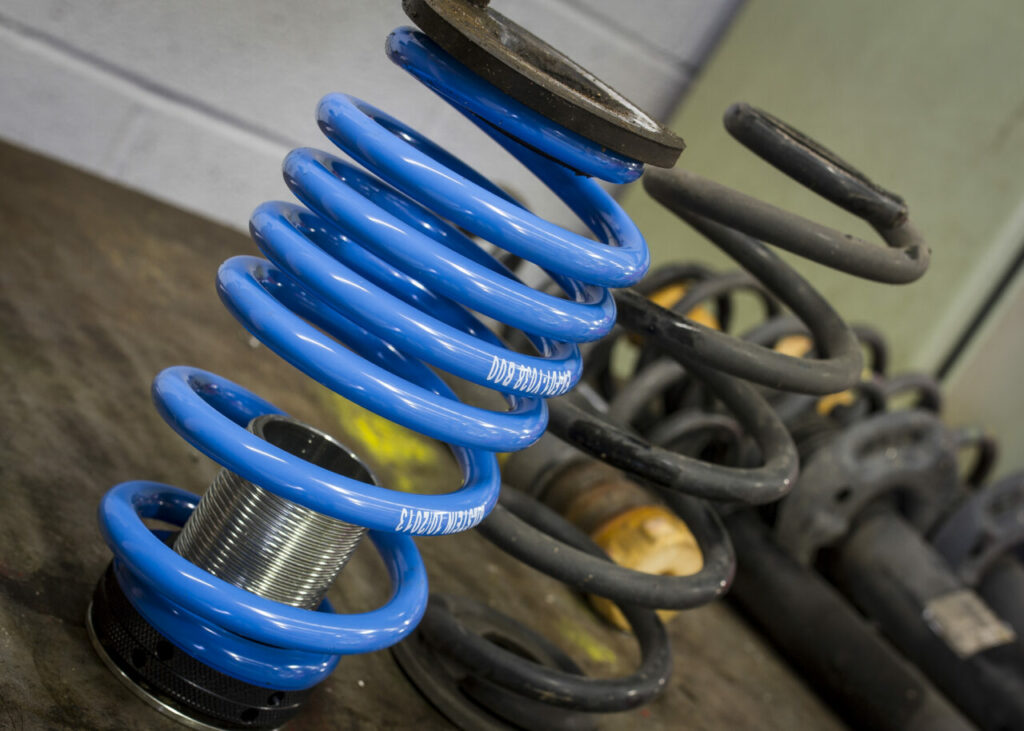
Wheels
One of the more underappreciated benefits of alloy wheels is their potential for improving handling. This is probably quite far down most people’s lists of reasons for fitting them. Normally it’s because they look cool. There’s nothing wrong with cool looking wheels of course, but that’s just one of the potential benefits. The right wheel and tyre combo can make your car nimbler, having very real effects on how quickly you can accelerate and corner. It can also improve how your car feels.
Weight of the wheel is therefore something to consider. Most wheels are cast. Casting is where molten metal is poured into a mould. This is generally a cheaper process than the alternatives when you’re looking at a complicated shape like an alloy wheel. Forging by contrast is applying heat and pressure to aluminium to force it into the shape you want. This process strengthens the metal and makes it more resistance to fatigue. Because the metal coming out of this process is stronger, you need less of it. Less metal makes for a lighter wheel.
From £300
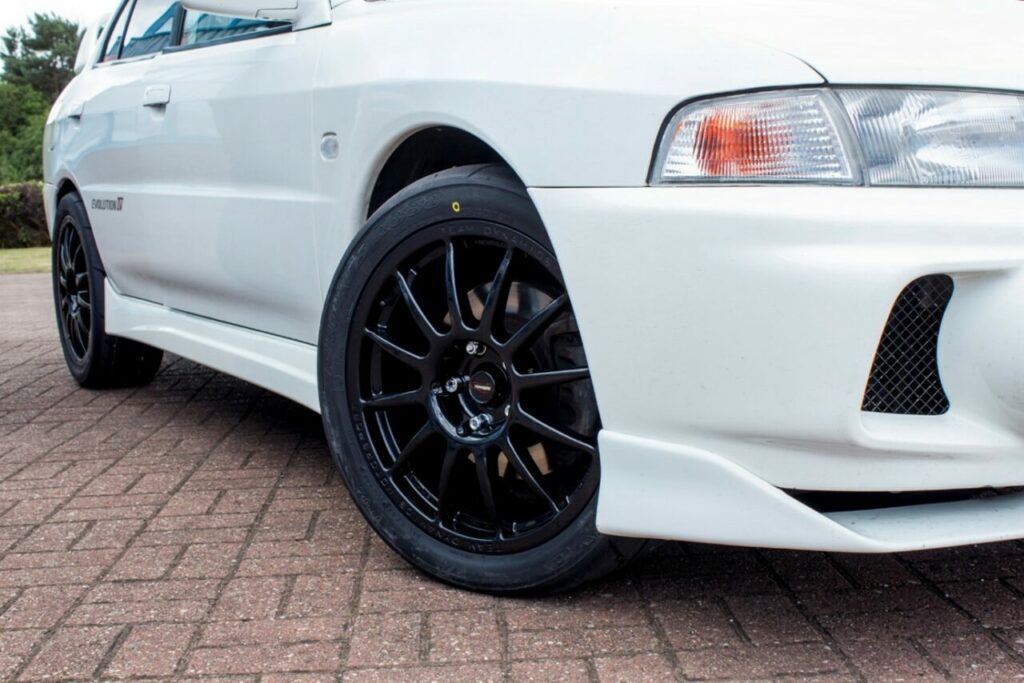
Tyres
When you consider the amount of the tyres that are actually touching the road/track surface, and all your asking them to do, both transmitting all the power under your right foot to get you up to speed, and hauling you up to a stop with a car weighing a couple of tonnes, you’d be well advised to commit a sensible amount of your budget to getting some quality performance tyres.
Remember all of that power you’re chasing will be useless if you can’t get traction. Having a good set of tyres under you sets you up to get the most from all the other modifications you make, capitalising on acceleration, braking and cornering. Tyres can of course be affected by surface / weather / temperature conditions too, picking a focussed tyre for your requirement like tyres for track days, drier summer months or wintry weather is ideal but you can get some tyres that are great all-rounders.
From £36.48
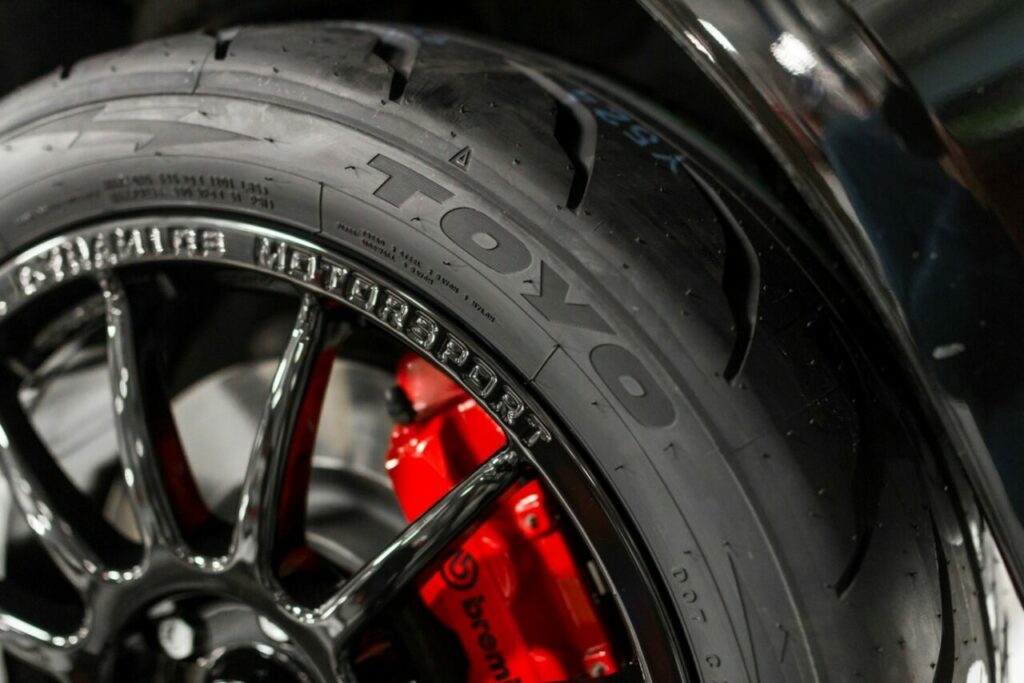
Software
Modern fuel injected engines are controlled by an on-board computer (the ECU or engine control unit), which takes readings from your engine’s various sensors and then gives out settings that are appropriate to the demands of your engine. This is happening constantly whenever the engine is running. When a car’s ECU is first programmed, manufacturers include certain compromises in its programming in order to safeguard the engine against things like drivers who ignore service intervals or who use substandard fuel. Because performance ECU remaps are aimed at enthusiasts like you, these compromises can be done away with – freeing up the engine’s potential for greater power and torque.
Power gains of up to 20% (with torque gains of up to 25%) are typical for turbo petrol engines, and up to 30% more power and torque for turbo diesel models. Remaps can often boast better economy too, a great idea considering current fuel costs.
From £238.80
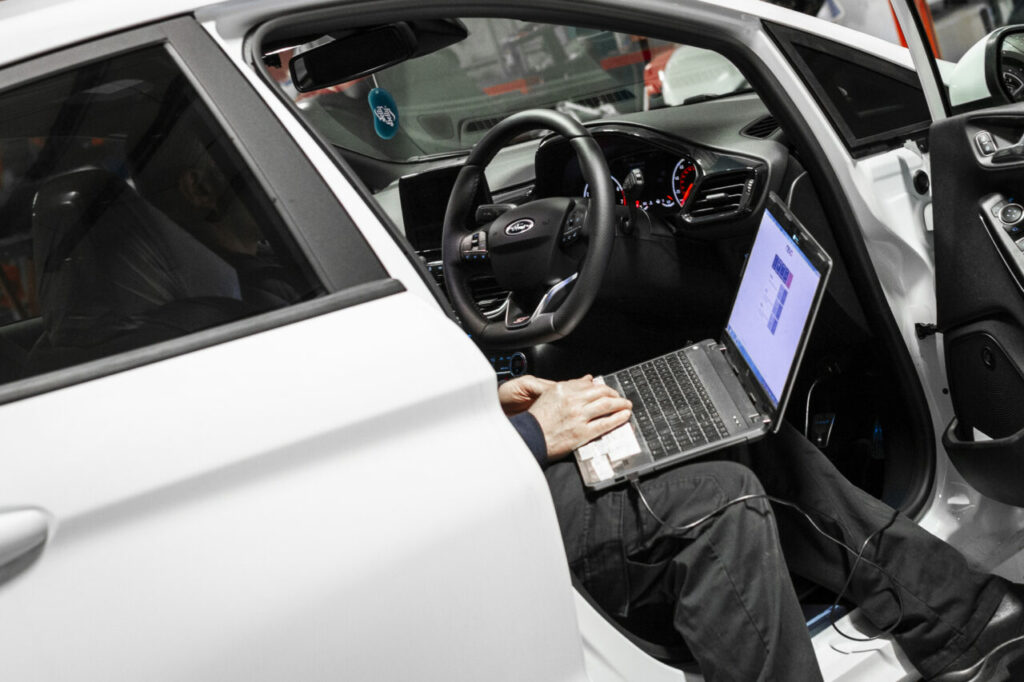
Intercoolers
Cold air is what you want your engine to breathe if you want top performance from it – because it’s denser – but forced induction heats your charge air up significantly even on a standard car. So, what we need to do is cool that air back down. This is where an intercooler comes in. Although most modern cars with forced induction come from the factory with an intercooler, they tend to be quite small, or fitted in inefficient locations like on top of the engine (we’re looking at you Subaru Impreza STI!). Fitting a much larger alloy intercooler – and locating it behind the front grille (which can often be enlarged to suit) will ensure that the air your engine breathes is much cooler, – giving you more power.
Enlarging the pressurised space between your turbo (or supercharger) and the inlet, can lower the pressure of the air going from the turbo into your engine. This can be counteracted by upping the boost provided by the turbo – meaning that you’ll notice the best performance gains when fitting a performance intercooler in conjunction with an ECU remap.
From £262.45
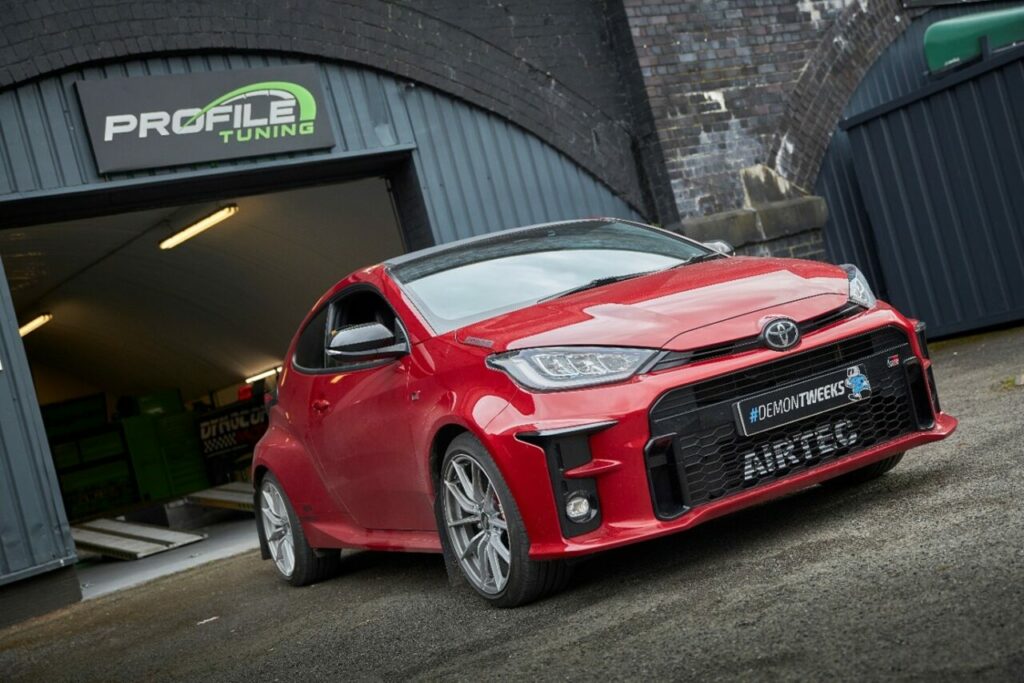
Brake Pads
For a relatively small outlay, you can upgrade your cars braking system with an upgraded brake pad and feel real improvements almost straight away. When we talk about brake pads, we tend to talk about compounds. This is what the pad is made of. There’s a wide range of manufacturers and compounds on offer, and everyone has their personal favourite. Perhaps the biggest difference between these compounds is what temperature range the pad is intended to work in. On a track car, the brakes get a vigorous, sustained workout and stay at least warm most of the time. They’re also likely to be hitting much higher temperatures than those on your road car.
On the road generally brake pads have much easier lives. They do get chance to cool down, and there is no warm-up lap before you start driving. This means the pad must work from cold, and probably won’t get as hot (you’d hope). A good indication that a pad is going to work well when cold is if it carries ECE R90 certification. This means that the pad performs similarly to the original pads on the car under testing. Not every popular road pad does carry this, but it is a legal requirement in many countries.
From £7.02
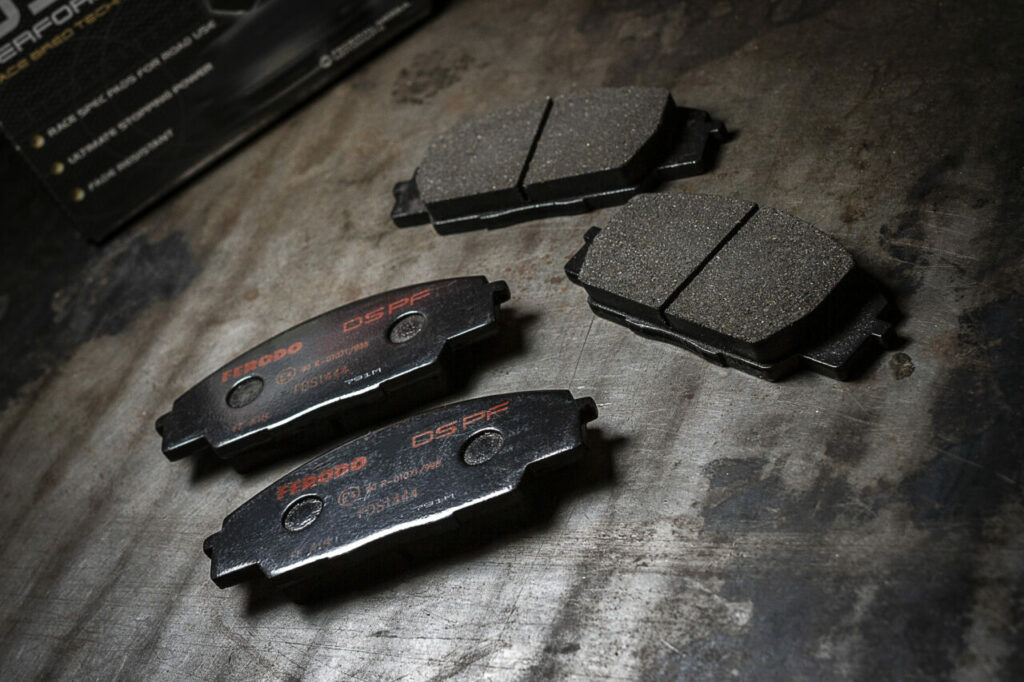
Exhausts
The thing you want if you’re looking to improve performance is a cat or gpf-back performance exhaust system (so called because they replace every part of your exhaust from the catalytic converter/gasoline particulate filter backwards). As a bonus, most performance exhausts are made from stainless steel and come with lifetime warranties – so they’ll probably never cost you anything to replace. Fitted in conjunction with a decent induction system, a performance exhaust should give you a few extra bhp and let your engine rev a bit easier.
If you’re concerned about noise, then bear in mind that most manufacturers (like Milltek, Scorpion, Cobra etc.) offer you a choice of how much silencer you want on your exhaust. This may be in the form of the same system with and without some of the silencers / boxes. It may also be in the form of resonated or non-resonated versions of the same exhaust. A resonator cuts out certain sound frequencies, like those heard when the engine is at low revs, whilst enhancing others. More power and an improved soundtrack, what’s not to love?
Check out our Tweek’d YouTube series for more info!
Milltek Exhaust & MORE POWER for our VW Golf R Mk8 | Tweek’d Episode 3 | Demon Tweeks
From £181.85
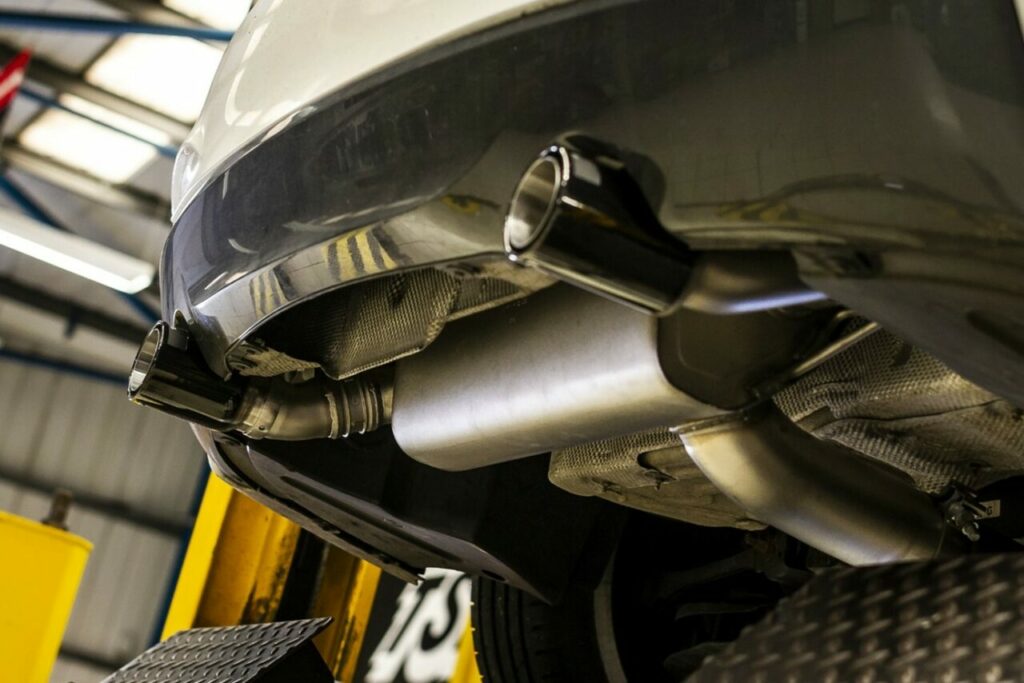
Coilovers
The Godfathers of control and adjustability; coilovers are the pinnacle of suspension upgrades. This type of suspension is height adjustable – meaning that you can slam your car into the weeds if you want to – and this makes coilovers ideal for use in stance projects. But this level of adjustability is also just what you need if you’re after the ultimate handling setup.
You can use a process called corner-weighting to distribute weight around your car using the suspension’s ride height. As you’re doing away with the factory springs and dampers, the development engineers are free to develop a paired spring and damper from scratch. The units can be much thicker than the originals (provided they still fit) and the spring and damper can be much firmer than the original kit. Like many things, you’ll find that you tend to get more adjustability with coilovers, the more you pay. Whilst basic units are height adjustable, more advanced types also have adjustable stiffness. Suspension stiffness is split into ‘bump’ (compression) and ‘rebound’ (decompression) – with most variable stiffness units offering adjustable rebound, and more expensive ones, adjustable bump too.
From £377.99
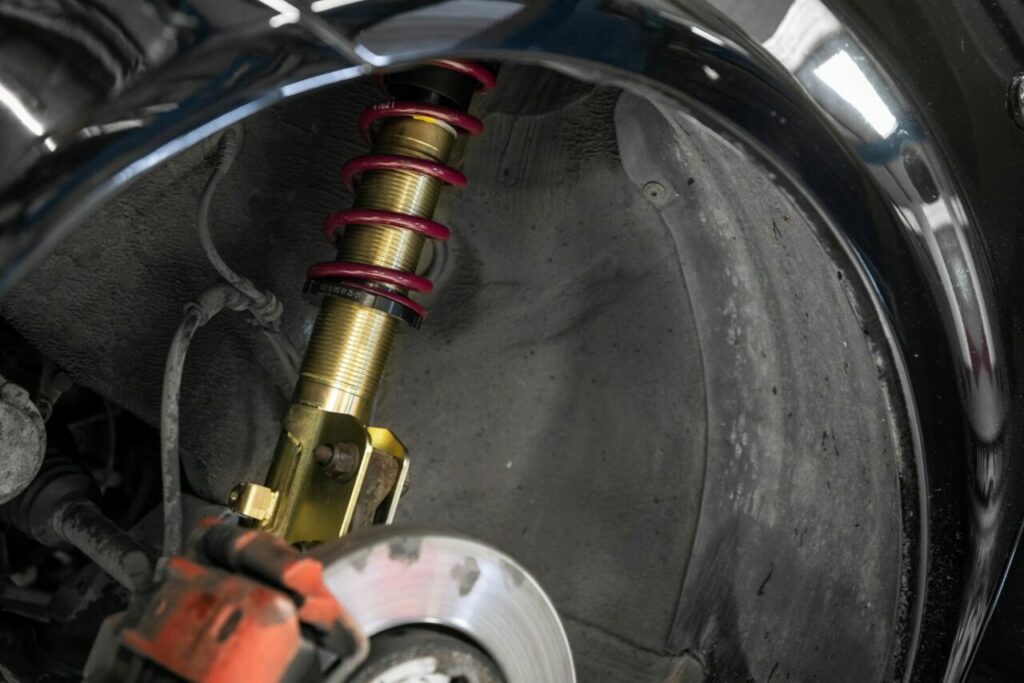
Anti-Roll Bars
Not to be confused with strut braces, anti-roll bars reduce body roll during hard cornering by taking some of the forces generated on one side of your suspension and transferring them to the other. This helps the vehicle to lean less during cornering – improving traction and meaning that you can go faster around bends.
On a FWD (front wheel drive) car, as standard you’ll probably have a stiff anti-roll bar at the front and a weaker setup at the rear. Upgrading the rear anti-roll bar to something stiffer is generally a good idea in this situation. RWD (rear wheel drive) cars are generally the reverse in terms of anti-roll bars when they come from the factory. Here, the best way to improve things is generally to fit a stiffer front anti-roll bar. 4×4 cars can vary in terms of anti-roll bar setup – often depending on the style of 4×4 system fitted. Take care whenever you adjust your anti-roll bar setup, as you can introduce a change in understeer or oversteer characteristics from stock.
From £99.37
Enjoyed this? Read more of our latest news:
Where To Next?
Looking for the latest performance & tuning parts? Check out our wide range from top brands.
Come and visit us at our store, showroom and fitting centre in Wrexham.
Want to know more about our story? Learn about who we are and why we’ve been driven by passion for over 50 years.
Interested in everything we do? Catch up on all the latest Demon Tweeks news.
